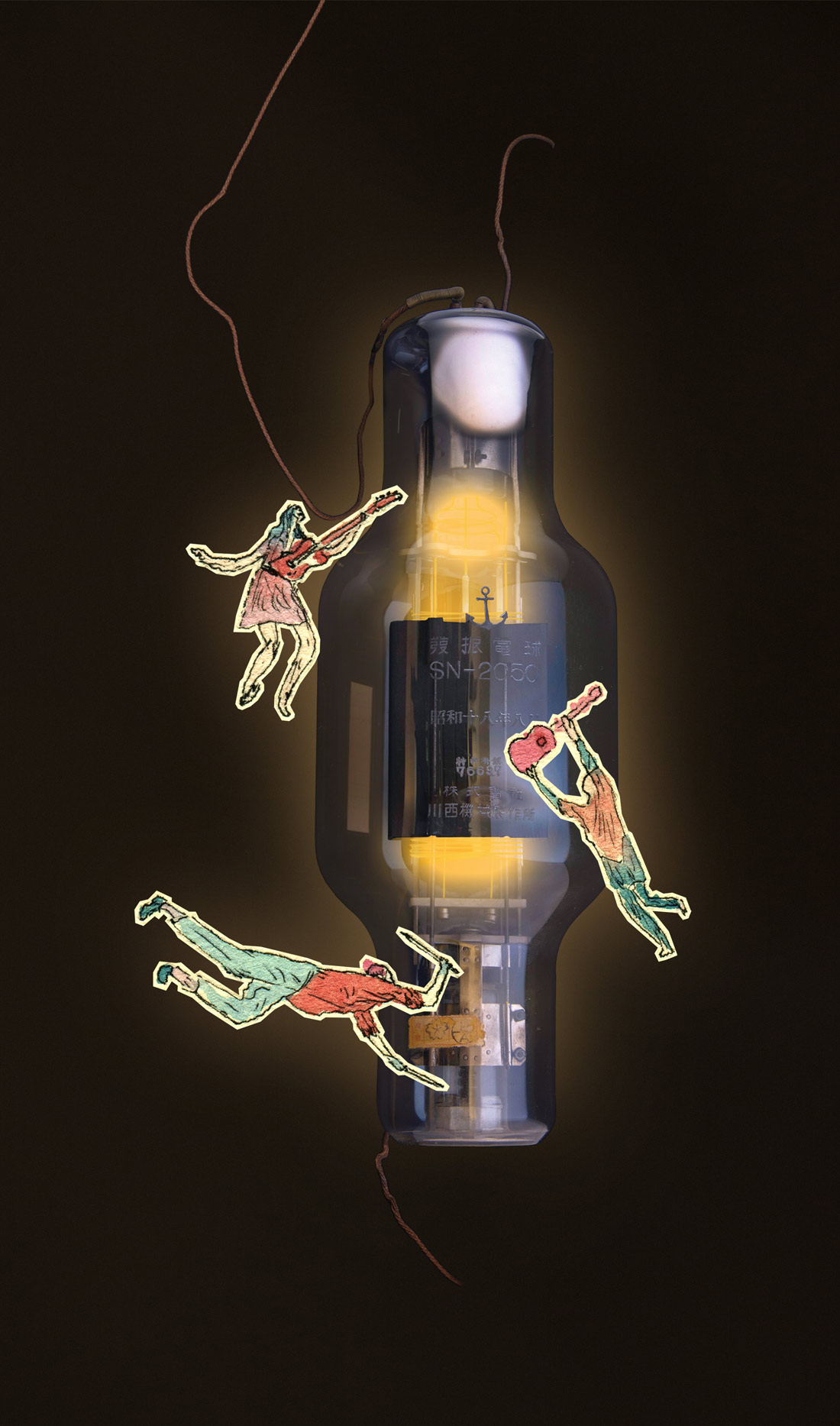I was amazed when I first witnessed radio-controlled airplane models flying through the air. But the complexity and maintenance requirements of fuel-based engines and analog radio systems scared me off from venturing into that hobby. Decades later, someone showed me how simple, affordable, and fun it was to build and fly electric-powered RC aircraft, and that's when I dove right in. Looking back, the path I followed into RC parallels the route I took into music recording — a key person showed me how simple, affordable, and fun it was to use a TASCAM Portastudio to make music. I'm sure for a lot of you, the story is similar. A 4-track cassette got you going, and now you're building out a studio. Which brings me to the topic of power tools — and perhaps you're wondering why I brought up RC to begin with. Advances in lithium battery chemistry and brushless motor systems made it possible for electric RC planes to outfly their fuel-powered counterparts, and that same technology has slowly made its way into power tools. ••• First off, if you're planning on any cordless tool purchases, you'll want to choose one or possibly two lines so that you can reuse your batteries and chargers across multiple tools. Moreover, a combo set of several tools with a shared battery/charger system will save you a ton of money. With that said, if you're a studio DIYer, your first purchase should be a cordless drill for racking gear, hanging drywall, mounting acoustic treatment, and other jobs that require drilling holes or turning fasteners. A jigsaw, reciprocating saw, or worklight might be your next. 18V lithium-ion batteries (which some manufacturers market as 20V) give you the biggest range of choice, and my bang-for-buck recommendation is to go with RIDGID or Ryobi ONE+. Both brands are owned by TTI and are available in North America at Home Depot ("Home Cheapo"). Both also offer a huge selection of affordable tools that work with their respective battery systems. Unfortunately, the batteries are not swappable between brands, although some of the tool parts are. For several years now, I've owned a Ryobi ONE+ drill, impact driver, jigsaw, and worklight — and none of them have failed me. But a major advantage of going with RIDGID is its warranty, service, and battery-replacement policy. Although these Li-On tools are lighter than the NiCd and NiMH-based tools of the past, they can still be unwieldy for delicate tasks, like turning the tiny fasteners in a 500-series rack. This past winter, I splurged on a Bosch 12V MAX PS22 brushless 1/4'' hex driver. At half the size and weight of my non-brushless Ryobi drill, it's much easier to finesse — but surprisingly, it has as much torque. At its highest clutch settings, it will easily snap a stuck drywall screw or a #10 wood screw. Moreover, because of its non-fatiguing weight, the PS22 is perfect for hanging drywall (or other materials that require lots of screws) over your head. I've since purchased its sibling PS32 brushless 3/8'' drill and a couple other tools in the Bosch 12V line. If the allure of extra power, longer runtime, and lower maintenance of brushless motors is intriguing you, Milwaukee (also a TTI brand) has the largest selection of brushless tools, and I see more professionals with Milwaukee than any other brand. ••• But all these brushless tools are expensive, so you might want to wait for prices to fall when brushless becomes the norm, as it has in the RC world. Years ago, I paid $90 for my first brushless RC motor. Recently, I bought equivalent motors for $15 each!

